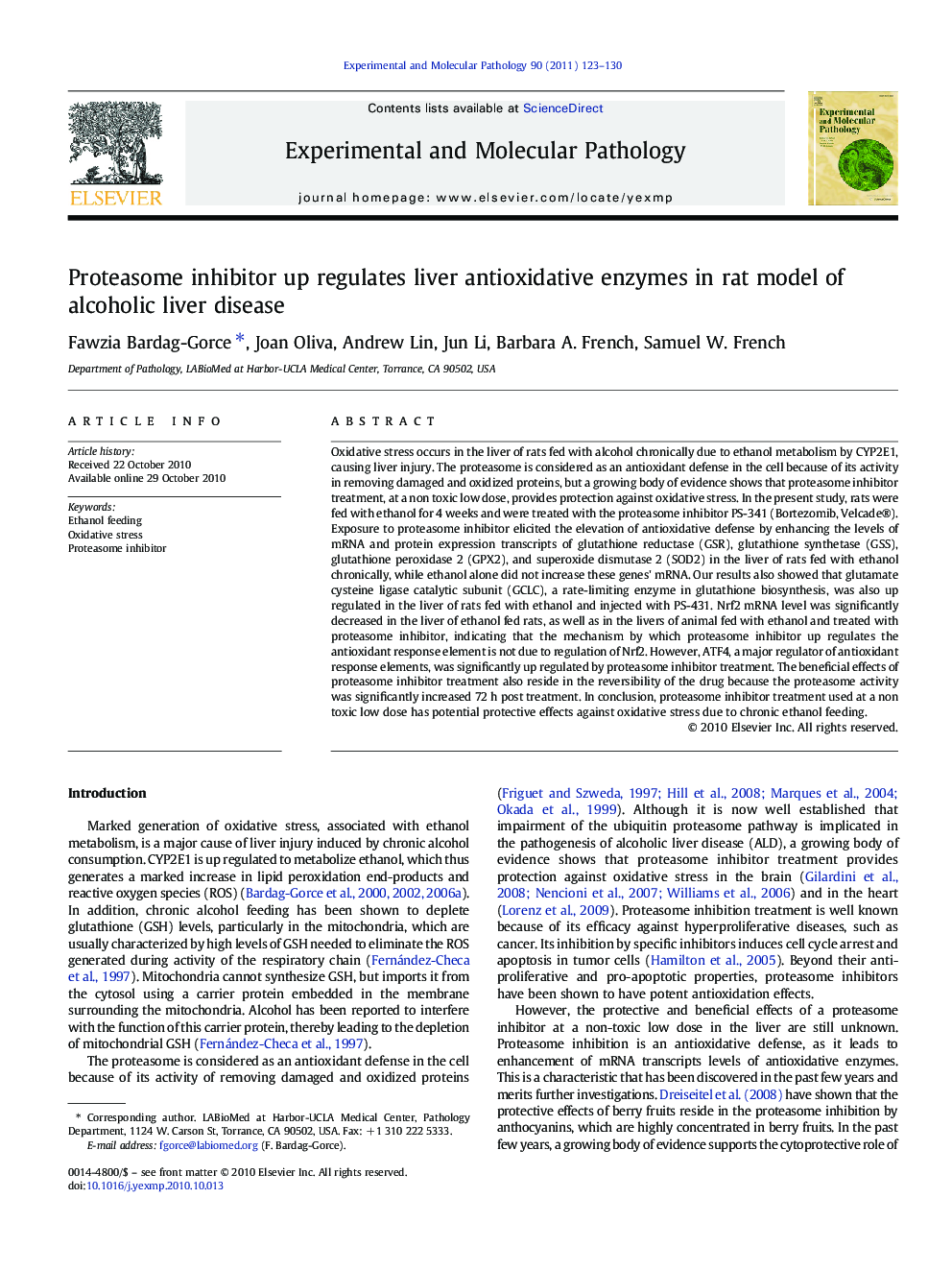| Article ID | Journal | Published Year | Pages | File Type |
|---|---|---|---|---|
| 2775538 | Experimental and Molecular Pathology | 2011 | 8 Pages |
Oxidative stress occurs in the liver of rats fed with alcohol chronically due to ethanol metabolism by CYP2E1, causing liver injury. The proteasome is considered as an antioxidant defense in the cell because of its activity in removing damaged and oxidized proteins, but a growing body of evidence shows that proteasome inhibitor treatment, at a non toxic low dose, provides protection against oxidative stress. In the present study, rats were fed with ethanol for 4 weeks and were treated with the proteasome inhibitor PS-341 (Bortezomib, Velcade®). Exposure to proteasome inhibitor elicited the elevation of antioxidative defense by enhancing the levels of mRNA and protein expression transcripts of glutathione reductase (GSR), glutathione synthetase (GSS), glutathione peroxidase 2 (GPX2), and superoxide dismutase 2 (SOD2) in the liver of rats fed with ethanol chronically, while ethanol alone did not increase these genes' mRNA. Our results also showed that glutamate cysteine ligase catalytic subunit (GCLC), a rate-limiting enzyme in glutathione biosynthesis, was also up regulated in the liver of rats fed with ethanol and injected with PS-431. Nrf2 mRNA level was significantly decreased in the liver of ethanol fed rats, as well as in the livers of animal fed with ethanol and treated with proteasome inhibitor, indicating that the mechanism by which proteasome inhibitor up regulates the antioxidant response element is not due to regulation of Nrf2. However, ATF4, a major regulator of antioxidant response elements, was significantly up regulated by proteasome inhibitor treatment. The beneficial effects of proteasome inhibitor treatment also reside in the reversibility of the drug because the proteasome activity was significantly increased 72 h post treatment. In conclusion, proteasome inhibitor treatment used at a non toxic low dose has potential protective effects against oxidative stress due to chronic ethanol feeding.
Research Highlights► Proteasome inhibitor provides protection against ethanol induced oxidative stress. ► Proteasome inhibitor increases antioxidant element response via ATF4 up regulation. ► Proteasome inhibitor causes a rebound of proteasome activity 72h post administration. ► The beneficial effects of proteasome inhibitor treatment reside in its reversibility.
